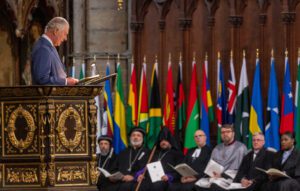The theme of the 13th AWID International Forum, held in Costa do Sauipe in Bahia, Brazil from September 8-11, 2016, was ‘Building collective power for rights and justice’.
It offered a forward looking perspective, of demanding boldness and embracing diversity: and the forum imbibed that spirit. The colour, beauty, diversity, vitality and boldness was evident in everything. From the sheer number and variety of participants, to the rich programme content, and even the living and working spaces.
I attended this AWID Forum, my first, with great anticipation and my objectives for the meeting were mostly external to myself. I looked forward to finding out more about the future of the women’s movement and exploring how my organization, the West Africa Civil Society Institute (WACSI) could play a significant role in strengthening the capacity of West African women and women in West Africa to face this future. I was concerned about how WACSI’s work would benefit more women’s and women-led organisations in West Africa, and how we could find more innovative ways of mobilizing resources to do this. The forum also offered the opportunity to connect with other organisations; especially other Commonwealth Foundation partners that were going to be a part of the delegation, to find common strands and strengthen our partnerships for greater impact.
The forum provided those opportunities…and many more. It offered a space for deep self-reflection. And I underestimated the depth of knowledge that could be shared, in less than ten days, between a motley group of women from Colombia, Canada, Barbados, Nigeria, Uganda, South Africa and Ghana, that made up the Commonwealth Foundation delegation. A truly amazing outcome was the bond formed between these women, who had different but in many ways shared experience.
The AWID Forum sessions were interesting, but perhaps even more enlightening and engaging were the times my delegation met; over breakfast, lunch, dinner, in meetings and between meetings, as we walked together to different sessions and congregated after them to debrief. It was in those spaces that I learnt the most. It was in those spaces that I shared the most. It was in those spaces that I got the answers to questions that had bugged me for years, and some that had even arisen during the AWID Forum sessions that I had not been able to get answers to.
I learnt for the first time about the place of women in the Afro-Brazilian struggle and why having the conference in Bahia was itself a statement of solidarity. I was challenged to think more broadly and innovatively about what strengthening civil society meant; going beyond organisations, and embracing other forms of organizing within civil society and thinking of ways in which to strengthen that. I had sometimes questioned my own identity as a feminist; and my tussle with whether I could be a Christian and still be a feminist was firmly resolved as one of us shared why that was not a contradiction ‘Feminism is about choice’ she said, and fighting power and structures that hinder that choice. My own understanding of feminism was broadened to embrace it as a more holistic philosophy rather than a narrow one of women’s rights. My journey as an African woman executive and its challenges were not peculiar to me, and I listened with admiration as my sisters described how they had faced the same issues, and how they had dealt with them in turn.
I left Bahia not only having met the objectives I had set for the meeting but with much more; I left with a better consciousness of self, and how I could and should engage in building collective power for rights and justice. I owe that to the interesting AWID Forum sessions I attended but mostly to those other six women who shared that space and time in Bahia with me. It is to them, and to the Commonwealth Foundation that made this opportunity possible, that I am eternally grateful.
Nana Asantewa is Executive Director West Africa Civil Society Institute and a friend and partner of the Commonwealth Foundation.








